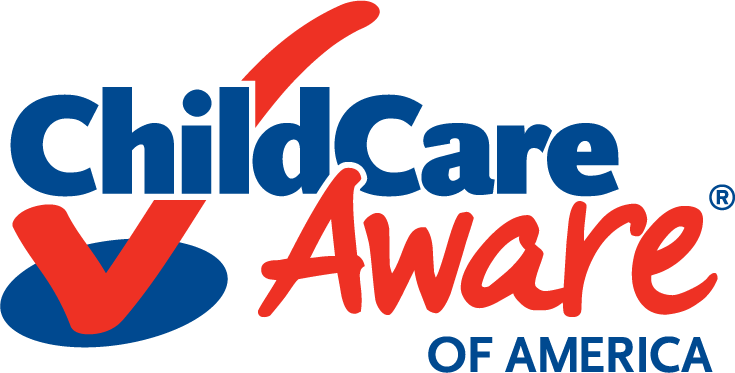 Today's job market requires many employees to work shifts that start or end after most child care programs open or close. More and more businesses operate around the clock. Many companies work in shifts, which means employees work in the early mornings, evenings, nights, rotating schedules, weekends, holidays or extended hours. These non-traditional schedules affect the lives of millions of families.
Today's job market requires many employees to work shifts that start or end after most child care programs open or close. More and more businesses operate around the clock. Many companies work in shifts, which means employees work in the early mornings, evenings, nights, rotating schedules, weekends, holidays or extended hours. These non-traditional schedules affect the lives of millions of families.
Hospital employees are but one example of working parents who work unusual hours and face special difficulties in finding child care or family support. From hotel staff to police officers to retail workers to factory employees whose services are needed beyond the typical work day, finding child care to match non-traditional schedules can be tough.
Child Care Choices
Changing schedules and unusual hours in a job are serious issues for many working parents. There are currently few child care programs for those families that need care during non- traditional hours. Most child care centers and providers operate Monday through Friday during regular business hours. Parents need child care during their working hours, whenever they may be. The search for child care can be difficult and the choices few.
For some parents, the solution to child care is to work alternate shifts. You may work the night shift while your spouse or partner works the day. Often these arrangements require your relatives or friends to fill in the gaps and overlap of work hours as well as the times when the schedule begins to fall apart. This leaves little time for parents or the entire family to have together. It's a tight schedule.
Family child care is often the kind of care best able to respond to the needs of working parents who work non-traditional hours. Family child care is more likely to offer flexible hours. Sometimes there are centers that serve employers, or communities where many families work late shifts, early morning or night hours.
Parents must sometimes use more than one regular child care arrangement to cover all the hours of their employment. You may place your child in a combination of formal care such as center or family child care, and informal care such as relatives, neighbors or teens/babysitters for after school and evening hours.
It may be possible to arrange a trade with another family. For every hour of child care you receive, you watch their child for one hour. This can be particularly helpful in filling in the gaps of your child care schedule although it also means giving some of your own free time.
Your local Child Care Resource and Referral agency (CCR&R) maintains a list of all state regulated child care in your area. CCR&R staff can help you find child care arrangements that offer flexible hours and best match your schedule. To find the CCR&R that covers your area, search online.
Your Employer's Role
Finding child care with flexible hours is not easy. Extended hours are very rarely provided for in center-based care and hard to find in family care. Unpredictable or erratic schedules can be particularly difficult when arranging good child care.
You can raise this issue with your co-workers, supervisors and management. You might find that by bringing this issue to your employer's attention, you are making them aware of it for the first time. Explain that parents cannot work productively unless they have care for their children where and when they need it. Success on the job is directly linked to accessible, affordable child care.
Some employers support efforts to identify family child care providers near the workplace or in neighborhoods where their employees live. Networks of family child care homes may be formed.
Your employer can be responsive to your needs in other ways too. . Determine whether your schedule can be modified or rearranged. Ask if information can be shared among all the employees through support groups and parenting seminars during work hours. Group discussion of strategies for finding child care, how to manage non-traditional work schedules, and balancing work and family life will benefit everyone.
Seeking Solutions
Some businesses have begun to address the lack of nontraditional hours child care. For example, an employer in Kentucky has set up an on-site child care center open 24 hours a day to fit the company's various work schedules. In North Carolina, managers at Purdue Farms initiated discussion with family child care providers when they planned a shift change for employees and anticipated a shortage of child care. In other areas, employers have joined together to create child care centers and to offer services for their combined company employees. Still other employers have come together to recruit and train child care providers who can provide non-standard schedules.
Some communities are addressing the difficulty of finding child care for non-traditional hours through a variety of traditional and innovative approaches. A program in South Carolina trains teenagers to provide care for after school hours. In California, a center serves families of workers at San Francisco Airport and related businesses by offering care from 5 AM to midnight seven days a week and allows parents to create new schedules every month. This program was created though the joint efforts of the employers, unions, local government and community groups.
What Can Be Done
There is no one perfect solution and much still needs to be done. It is time to raise everyone's awareness about the need for specialized child care services, and create links between employers, parents, child care providers and community service agencies. You can help by talking with your employer. Describe the need for non-traditional child care hours and explain that the company's support of this issue can attract and retain employees. Overall, there can be a significant reduction in absenteeism and an increase in employee morale.
Often businesses will begin with some form of survey to determine the existing needs for child care, an inventory of local child care resources and what the best response should be. There are typically few providers offering care during non-traditional hours and many parents in need of these services so the survey will identify these gaps.
Some states now offer incentives for providers to increase their hours of operation and there are increased efforts to identify new providers. The key to future success is to gain the commitment of more employers, child care providers and community members who see flexible child care hours as an important resource.
Innovative Approaches
Speak with your child care provider and your Child Care Resource and Referral agency about the hours you need and what can be done. It is possible that some of the best solutions for child care during non-traditional work hours in your community have yet to come. The following initiatives represent a sampling of public-private partnerships that have addressed child care during nontraditional hours:
1199/Employer Child Care Fund: A collective bargaining agreement between employers and the 1199 Health Care Workers Union in New York City. It offers a variety of child care services including a child care center, vouchers for child care and summer camp, resource and referral services, weekend cultural program and weekend care programs.
Employer's Child Care Alliance: Started by a group of business and government employers concerned about the lack of child care in rural Alabama. It provides a variety of child care services and has tried to stimulate child care during nontraditional hours. It provides extra staff such as college work-study students so family child care providers can take in additional children during the overlap of first and second shift parent employees.
Portland Bridge Kids Projects. In 1994 and 1995, the Maine Department of Transportation worked with the Portland YMCA to provide child care to workers at three major bridge and bypass construction sites. The YMCA offered early morning, evening and overnight care. An on- site consultant was hired to give out information about child care and to encourage additional contractors to adopt similar programs.
Paul's Place: When the ConAgra corporation wanted to attract and retain the best employees in their northwest Arkansas Butterball Turkey plant, managers realized that they needed to help meet the child care needs of their workers. Paul's Place child care was created through a local partnership headed by ConAgra. Partners include child care providers, Head Start, regional and federal economic development agencies and the Governor's Office. The center is open extended hours including weekends when parents must work mandatory overtime.
The Daily Parent is prepared by NACCRRA, the National Association of Child Care Resource and Referral Agencies.
© 2012 NACCRRA. All rights reserved.




